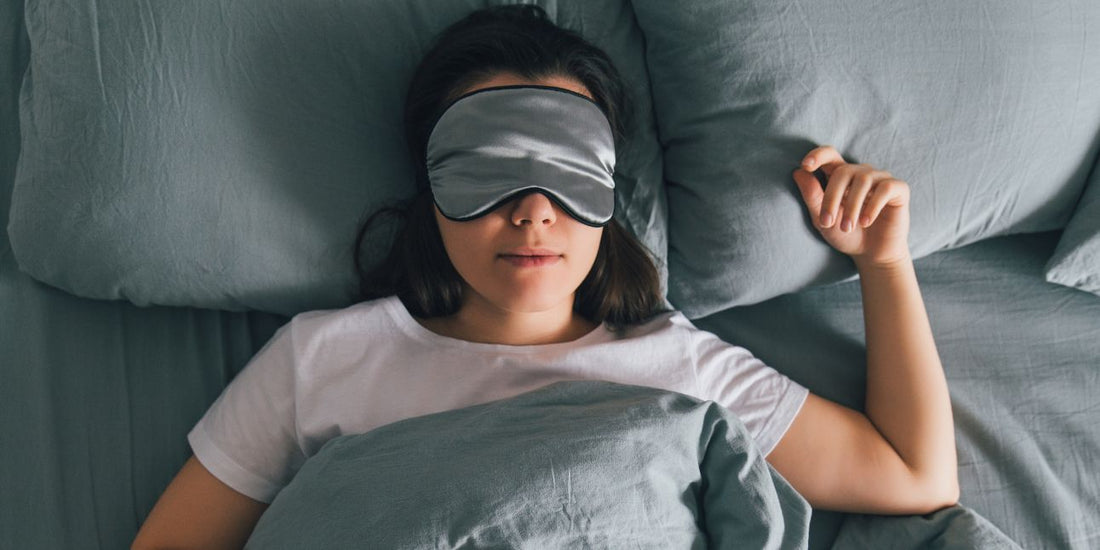
How Opal & Joy’s Rest & Relax Supplements Helps Perimenopausal Women Sleep Better
Opal & Joy’s Restorative Sleep System pairs Rest (organic full-spectrum CBD, CBN, linalool) with Relax (ashwagandha, reishi, Relora®, passionflower). This melatonin- and hormone-free duo naturally supports both the endocannabinoid and endocrine systems to help perimenopausal women fall asleep more easily, sleep more deeply, and wake up feeling nourished and balanced.
If you’re in your late 30s, 40s, or early 50s and finding it harder to get a good night’s sleep, you’re not alone. Millions of women experience sleep problems during perimenopause, the transition leading up to menopause. You may find yourself lying awake at night, waking drenched in sweat, or tossing and turning with racing thoughts. The exhaustion that follows doesn’t just make mornings harder; it affects your mood, focus, energy, and even your long-term health.
The truth is, sleep disturbances are one of the most common and disruptive symptoms of perimenopause. Changing hormones, shifting circadian rhythms and new stressors all collide at once, leaving many women searching for answers and often feeling frustrated when conventional sleep aids don’t address the root cause.
That’s why we created the Restorative Sleep System. This two-part, plant-based, hormone-free solution was designed for perimenopausal women, by perimenopausal women.
By supporting both the endocannabinoid system (with calming ingredients like CBD, CBN, and linalool) and the endocrine system (with adaptogens like ashwagandha, reishi, Relora®, and passionflower), it helps you not only fall asleep more easily but also stay asleep. After a good night's sleep, you'll wake feeling restored and ready for your day.
This guide will walk you through why perimenopause causes sleep problems, what you can do about it, and how Opal & Joy's Restorative Sleep System can play a key role in helping you reclaim the restful nights your body and mind deserve.
Why Does Perimenopause Cause Sleep Problems?
Sleep difficulties often begin well before menopause during perimenopause. Fluctuating and declining levels of estrogen and progesterone can disrupt your body’s internal rhythms, impair mood regulation, and even affect how the brain controls temperature—leading to insomnia, night sweats, or frequent awakenings. Some studies claim that 78% of women report sleep issues in menopause, while 65% report hot flushes and night sweats.
The Johns Hopkins Medicine team explains that sleep problems may start in perimenopause and persist through and after menopause. These hormonal shifts also reduce your natural melatonin levels—making it harder to stay on a regular sleep–wake schedule.
Is It Always Hormonal or Are There Other Causes?
While hormonal disruption is a primary driver, it's not the only culprit. Perimenopause can also increase the risk of sleep disorders like obstructive sleep apnea (OSA) and restless legs syndrome (RLS). These conditions often go undiagnosed in women and significantly impact sleep quality. Additionally, the body’s circadian systems can become misaligned, further fragmenting sleep.
What Are the Most Common Sleep Problems During Perimenopause?
The most frequently reported issues are:
- Insomnia, including trouble falling asleep, waking up frequently, or waking too early.
- Night sweats and hot flashes, which interrupt sleep and are deeply tied to estrogen fluctuations.
- Sleep apnea and RLS, which cloud the restfulness of sleep.
Many women find themselves “wired but tired”—exhausted during the day yet unable to settle at night.
What Can I Do to Improve My Sleep in Perimenopause?
Strategies include:
- Addressing underlying sleep disorders (e.g., OSA or RLS) with your healthcare provider.
- Menopausal hormone therapy (MHT), especially for symptoms like severe night sweats, should be considered while weighing risks and benefits with your doctor.
- Prioritizing non-hormonal approaches such as cognitive behavioral therapy for insomnia (CBT-I), lifestyle changes (sleep hygiene, cooling rituals), and supportive supplements like Opal & Joy’s system.
Why Do I Have Trouble Sleeping During Perimenopause?
You may be facing a combination of:
- Hormone-driven disturbances disrupt temperature control and circadian timing.
- Anxiety or mood fluctuations are tied to estrogen shifts.
- Physical symptoms like nocturia (nighttime bathroom visits), sleep apnea, and RLS.
All these factors can chip away at the quality and duration of your sleep.
Can Perimenopause Affect Sleep Even Without Hot Flashes?
Absolutely. Hot flashes are common, but perimenopausal sleep disturbances can occur even in their absence. Disruption may stem from underlying hormonal shifts (declining estradiol, progesterone), insomnia, circadian misalignment, or emergent sleep disorders.
How Long Does Perimenopause and Its Sleep Disruption Last?
Perimenopause can span up to four years before the final menstrual cycle, though some women experience it for longer. Sleep disturbances may persist throughout this transition and into menopause unless addressed.
What Specific Sleep Issues Might I Experience?
- Difficulty falling asleep
- Fragmented sleep caused by night sweats or hormonal surges
- Early waking or non-restorative sleep
- Elevated brain activity at night (cortical hyperarousal)
- All of these reduce sleep efficiency and leave you feeling foggy in the morning.
How Does Poor Sleep During Perimenopause Affect Me?
Chronic poor sleep can:
- Worsen anxiety, mood swings, memory fog, and irritability
- Increase cardiovascular risks—studies show poor sleep during menopause is linked to lower heart health scores.
- Impair daily functioning, productivity, and quality of life
Are My Sleep Problems Definitely Related to Perimenopause?
Not necessarily—but when sleep disturbances begin alongside menstrual changes or mood shifts and persist consistently, perimenopause is a likely factor. However, it’s always wise to rule out other contributors—like thyroid issues, medications, weight gain or lifestyle stressors—with your healthcare provider.
What Lifestyle Changes Can I Make to Improve My Sleep?
Adopting sleep-supportive habits can make a difference:
- Create a cool, dark, and quiet sleep environment (around 65°F/18°C)
- Establish a calming pre-bed routine—limit screens, wind down with relaxation or journaling
- Include daytime movement and stress management like mindfulness or gentle yoga
- Monitor and adjust caffeine, alcohol, and late-night eating
- Seek professional help for underlying issues like sleep apnea or restless legs
- Pair lifestyle tweaks with Opal & Joy’s Restorative Sleep System offers a holistic approach that addresses both root causes and nighttime symptoms.
What Is the Opal & Joy Restorative Sleep System?
Opal & Joy’s Restorative Sleep System is a two-part, hormone-free and melatonin-free approach created specifically for perimenopausal women.
By combining Rest (organic full-spectrum CBD, CBN, and linalool) with Relax (ashwagandha, reishi, Relora®, and passionflower), it softly yet powerfully supports both the endocannabinoid system (helping calm the mind) and the endocrine system (helping balance stress and hormones), promoting deeper sleep and more sustained rest.
How Rest Supports the Endocannabinoid System
The Rest perimenopause sleep support supplements combines organic full-spectrum CBD, CBN, and linalool to gently stimulate the endocannabinoid system—a network that controls sleep, mood, and stress.
CBD (Cannabidiol)
A calming plant compound that supports the endocannabinoid system, helping quiet the mind and ease tension before sleep. Rea
CBN (Cannabinol)
Known as the “sleepy cannabinoid,” it may help extend deep, restorative sleep cycles.
Linalool
A naturally soothing terpene found in lavender that promotes relaxation and reduces nighttime anxiety.
Read more about how Rest supports the endocannabinoid system.
How Relax Balances the Endocrine System
The Relax perimenopause sleep support supplement blend includes powerful adaptogens and
Ashwagandha
A powerful adaptogen that lowers cortisol, balances stress, and restores hormonal resilience.
Reishi
A medicinal mushroom that supports serotonin pathways, helping to improve mood and enhance sleep quality.
Relora®
A clinically studied botanical blend (Magnolia + Phellodendron) shown to calm the nervous system and reduce night sweats.
Passionflower
A gentle botanical that works with the GABA system to quiet racing thoughts and promote restful sleep.
Read more about how Relax supports the endocrine system.
How Rest & Relax Work Together
Individually beneficial and stronger together, Rest calms the nervous system, while Relax addresses the hormonal stress underlying many perimenopausal sleep disturbances. This dual support helps with falling asleep, staying asleep, and ultimately restoring balance and well-being over time.
Lifestyle Tips to Maximize Results
To amplify the effects of the Restorative Sleep System, pair it with:
- A daily wind-down routine 60–90 minutes before bed that includes quiet time, dim lights, soothing music or reflection
- A sleep-optimized environment that's cool, dark, quiet, and free from screens
- Healthy nighttime habits such as limit alcohol, avoid late caffeine, keep fluids in check
- Stress-reducing daily practices like journaling, gentle yoga, breathwork, or mindful walks during the day
Together, these habits and the supplements compose a comprehensive, non-hormonal plan to support your sleep—and yourself—through perimenopause and beyond.
This content is for educational purposes only and is not medical advice.


